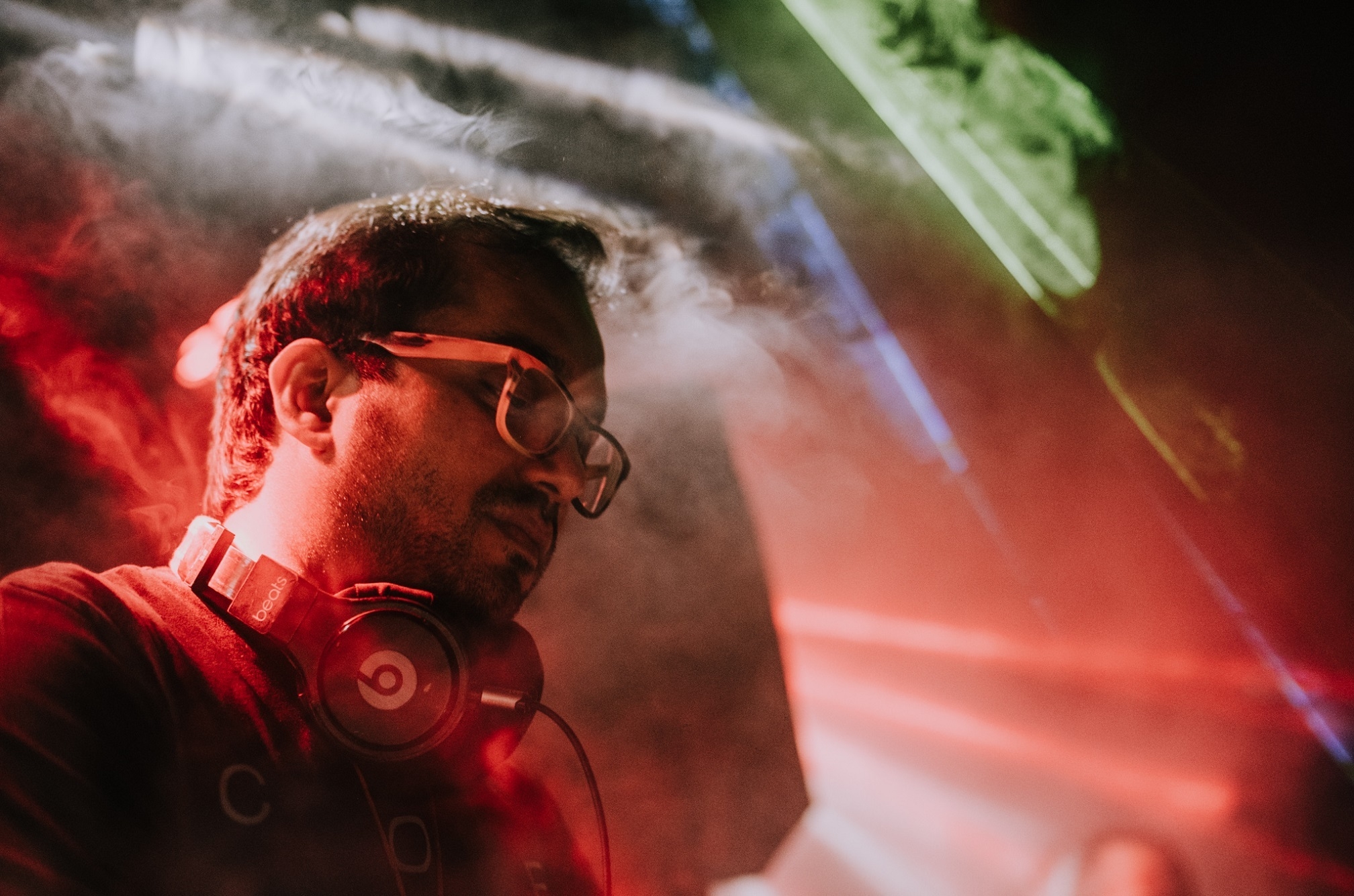 Features
Features
New Delhi deep house maverick: Hamza Rahimtula's global dance voyage
“A healthy scene should have choices and we are playing our part to build things up”
Purveying organically-charged deep house textures appears to be a life's calling for New Delhi-based artist, Hamza Rahimtula. The DJ, producer, and record label head has carved out a fine reputation for purveying club-ready sonics with roots firmly planted in the authentic club sounds of the UK and US. After getting to know a little more about his trans-global background, his floor-focused pedigree makes perfect sense.
The vast subcontinent of India is, of course, magnificently rich with music and culture. The country's electronic music scene has been bubbling away for a good many years, too, but has more traditionally been associated with fast-paced sonics shifting through Goa trance, psytrance, and – more recently – the darker shades of techno and tech-house. Rahimtula, then, can be considered something of a pioneer: a fully committed artist powering against the grain to present his distinct musical vision, from India to the world.
Having lived in cities including New York, Paris, and Boston, Hamza was exposed to some of the pinnacle underground dance players during his time spent overseas. Danny Tenaglia, Terry Francis, Dave Mothersole, and DJ Heather are among those who helped inspire his onward journey, igniting within him a fiercely burning flame fuelled by the deepest funk-flecked and tribal-leaning dance sounds. Coupled with this, his long-standing fascination with indigenous global rhythms have come to exemplify his sound, and the Wind Horse label he runs has firmly established itself as a benchmark supplier of fusion dance grooves. Garnering heavyweight support from the likes of Richie Hawtin, Dubfire, Peter Kruder, Tom Findlay and Quentin Harris, the label's prolific output is supremely polished and routinely excellent.
Effortlessly combining his symbiotic passions for world music and electronic production, his ongoing 'Banjara' series of albums has allowed Hamza to join forces with icons of international folk to collaborate and exchange – re-imagining mystical melodies and eternal rhythms for today's clubs, bars, and beachsides. Traversing disparate landscapes with each edition, he's explored the exotic stereo topography of Turkey, Mali, Spain and South America, working with artists including Bassekou Kouyate, Juan Mejia, and regular wingman, Loopy Juice. While the bulk of his work arrives under the Wind Horse, his unique sound has caught the ears of A&R departments at some of the world's best-known house imprints, and he's released music on timeless labels including Kompakt, King Street Sounds, Nitegrooves, and Monique Speciale. Perhaps unsurprisingly given his life's trajectory, Hamza is a particularly accomplished DJ and selector, too, having performed refined and genre-spanning sets across continents. His stage shows have recently evolved to incorporate live improvisations and guest performances from talented musicians, including breathtaking sundown sessions with jazz vocalist, Mr Bista.
With all this in mind, we were understandably keen to sit down with Rahimtula to learn more about his remarkable story, hear a ground-level report on the Indian dance scene, and to find out what's coming next from the New Delhi deep house maverick.
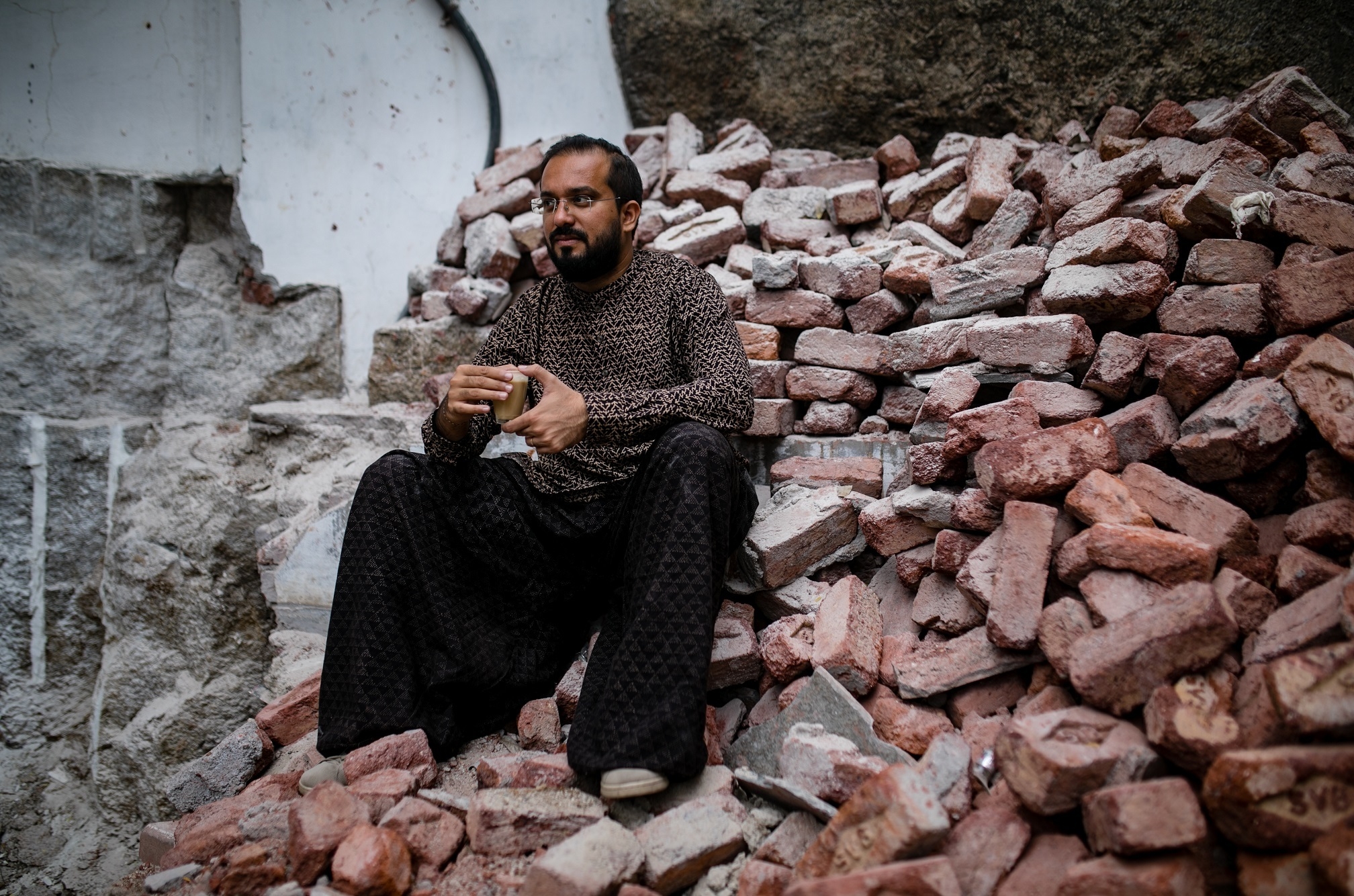
Hi Hamza, thanks for joining us. So, let's start at the beginning. How did your journey into music begin, what were you listening to as a youngster?
"I was introduced to Prince when I was four by my grandmother. I still remember the cover of the Vinyl. It was a moment that has never left me. As a teenager, cable television had just come to India and MTV was huge back in the '90s. I would be hooked to the US Top 100 and discovered tons of music there. My favourite bands were Nirvana, Smashing Pumpkins, and Jamiroquai. I also remember listening to the NOW Compilations which my parents would buy. I loved listening to those as I would discover all types of music there. I bought a guitar and a drum set and me and my brother would jam away after school in our room. That’s was where my journey began as I would try to make up my own chords and improvise. Before my university days, I was mainly into Grunge and also had a leaning towards funk. However, when I went to study in the States I got into funk and gradually Dance Music."
Well, Prince is a fantastic starting point, so well done to you grandmother! So, when were you bitten by the dance music bug?
"I remember listening to the first chemical brother's album and just rethinking my whole musical identity. I was just amazed at the sounds that they were able to produce and my head was blown off. Since that time, I knew I wanted to dabble in electronic music and had an inclination towards drum machines. The first drum machine I came across, in University, was the Roland MC 505. My neighbour had this machine and I borrowed it and went crazy. I ended up buying the groove box from him and this move made me become a producer from a guitar player. During the same year, a friend of mine got me into Danny Tenaglia and I was just loving this sound. It has all the elements that I like. There were big Tribal drums in there with funky bass lines and crazy build-ups so I was in heaven. I had found my calling!"
Ah yes, the joys of the drum machine! When did you begin DJing and start producing tracks, and how did you go about learning and refining your craft?
"I bought a pair of turntables in my third year of University and after practising for a year I played my first gig just before I graduated. Right after, I moved to New York to study Music Business and I had a residency in the East Village at a spot called The Sun Burnt Cow. I would play six Hours of vinyl every Friday and then carry my record bag for 45 minutes to the train station and take a 30-minute train back to Jersey City. Was rough but I loved it! I also started learning Logic when I was at NYU. I would take private lessons from a Polish engineer who lived in Brooklyn. He taught me how to navigate the production software. I was also working with a record label at that time and was surrounded by producers all day long so I would watch them make beats and this was a great experience. After NYU, when I moved back to India, I spent three years working with well-known Indian singers producing their tracks. Even though I did not continue to make commercial music, I learnt a lot from them and I still implement some of those skills into my music today. I am still refining my production and this will never stop happening. Student Forever!"
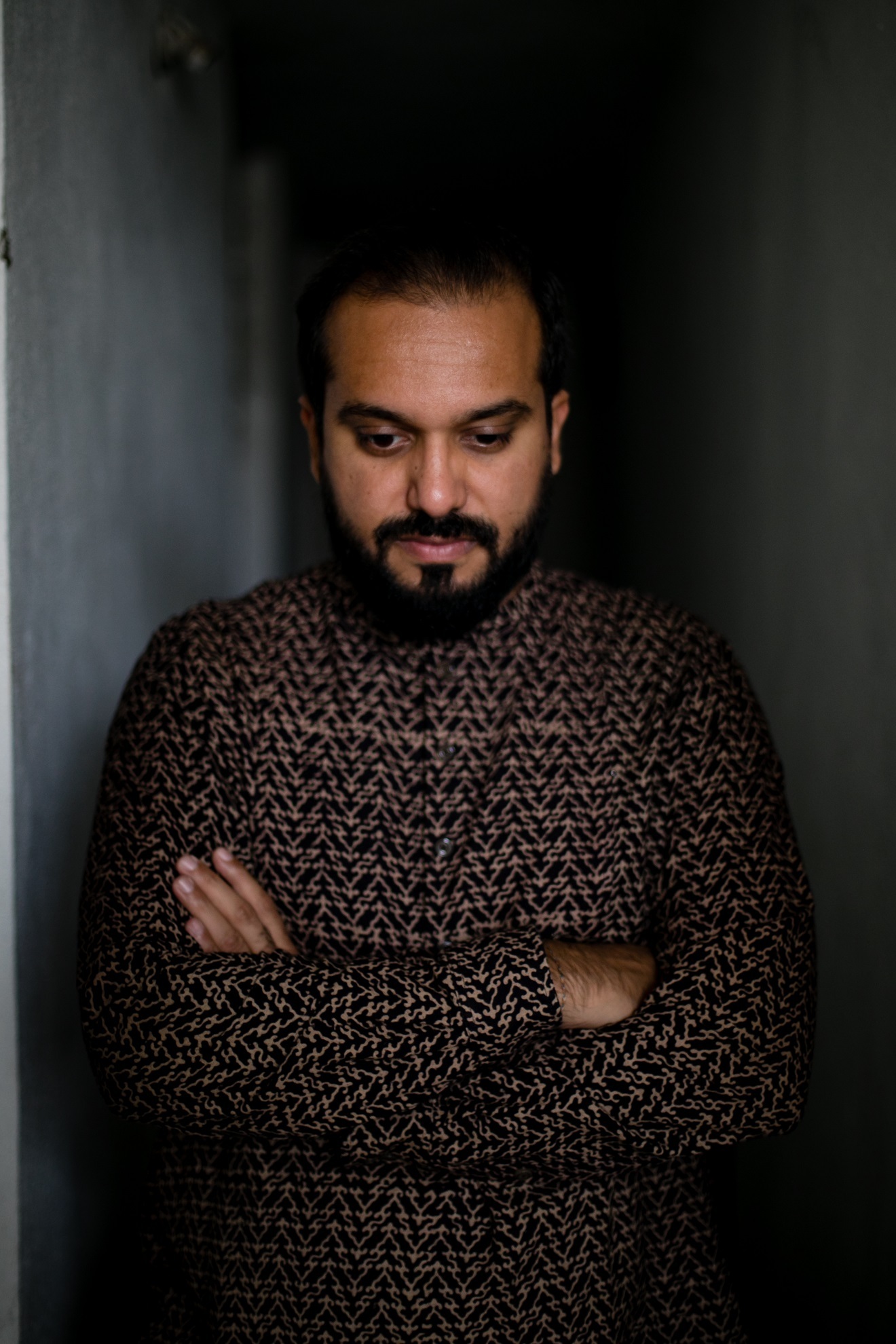
Now, who are some of your biggest influences as a producer and DJ?
"For DJs it's DJ Heather, Dave Mothersole, Terry Francis, Asad Rizvi, and Danny Tenaglia. For Producers, it's Joey Youngman, Jay Tripwire (Swag Records Releases), Audio Werner, and Louie Vega"
That sounds like a solid list to us. So, you've travelled rather a lot. How did your travel experience help shape your musical style?
"Travelling to different countries and living in different continents was the main contributor to my sound. I spent time In Africa, with my Latino friends at University. I am married to a beautiful Middle Eastern girl. I have lived in Europe, The States and India and travelled in Asia. So in short, I have taken from all cultures and I am very grateful for this exposure and for such lovely relationships with friends and family!"
Turning closer to home, what can you tell us about the dance music scene in India/ New Delhi? Is there much appetite for deep house, and what other sounds populate the underground landscape?
"The scene in India went from psytrance to progressive house to techno to melodic techno. The House scene has been there for a few years but now a bunch of us are making a collective effort to put house music on the map so that the audiences have options and don't need to subject themselves to hard and dark music, unless they want to. House music has been there in bits and pieces but its time in India has really come right about now. A healthy scene should have choices and we are playing our part to build things up. The feedback has been good and things are looking great!"
It's good to hear that you have some nice variety on the ground level there these days. Are there any other DJs, crews or producers in India you think we should keep our eyes and ears on?
"Stalvart John, Unnayanaa, Farhan Rehman, Blurry Slur, Ohja G, Smear, Ayesha Pramanik, Boxout FM Crew, Dynamite Disco Club"
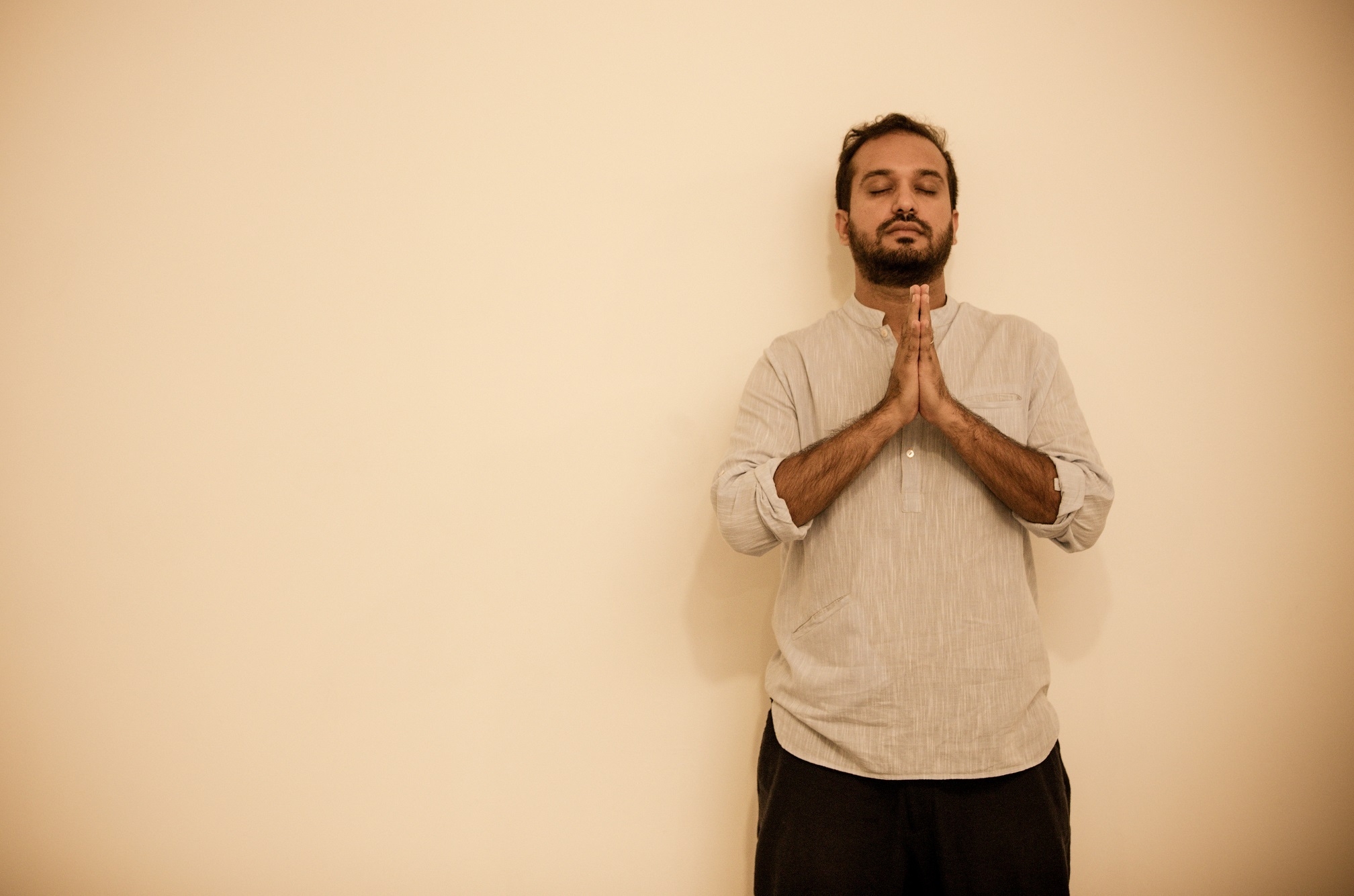
You've often collaborated with accomplished musicians from traditional 'world music' backgrounds. What is it about combining these sounds with an electronic aesthetic that appeals to you?
"For me, dance music does not mean that you have to restrict yourself to electronic music sounds only. Whatever instrument or sound that makes you want to move is part of the equation. I find that traditional folk music has some unreal percussive elements, instrumentation and vocals that can reach out to the primal nature of the listener. I had this experience in Fabric London in Room One when Terry Francis was playing. I heard a conga line and I felt as though I had connected with an emotion so deep that I felt alive. After that day I realised the power of mixing the old with the new cutting edge sounds. As we move forward into the future, we have to take along with us everything from the past that has stood the test of time."
Absolutely, there will always be room for organic textures in the dance world. Now, when did you set up Wind Horse, and what have been some of the challenges and highlights of running the label?
"Wind Horse was born in 2009. We did not have a tight sound in the beginning. It took us time to fix our mix-downs and to find a good mastering engineer that really cared about our sound. We also did not have many artists that were interested in house music. They did not even know how to produce so I had to make most of the music. Now things are very different. We have a super tight sound that can compete with any label anywhere in the world. We have a lot of young talent and Indian house music is on the rise. Everyone knows it and the Tsunami is coming!"
Thanks, we will take that as an official warning to take cover! Can you tell us about some of your most notable gig experiences – both in India and internationally?
"I love playing in Berlin. Played in Tresor and in many smaller clubs where I was able to shape my sound and grow as a DJ. I can safely say that Berlin helped me fine-tune myself as DJ. I was able to crack a few formulas there and this has helped me ever since. In India, I have been playing for 15 years and I have had some incredible gigs. Many amazing times in Goa, and all the other cities. I have played in Rajasthan in palaces in the middle of a Desert. I have also Played in the Himalayas in Dharamshala near the Dalai Lamas Monastery. I Love playing in Morocco. Have had some crazy nights there and the crowd there is just amazing. They really understand my music and I just love that country."
Nice, they sound like some spectacular backdrops! So, how is the local nightlife fairing now since the Pandemic struck?
"Things were closed down for the last two years. In the middle of the waves, there was some action but it was short-lived. Now things have picked up again and people are just raging. There is a fresh enthusiasm amongst the audiences and I can feel something bubbling! I played my first gig after 18 months last week and it was amazing!"
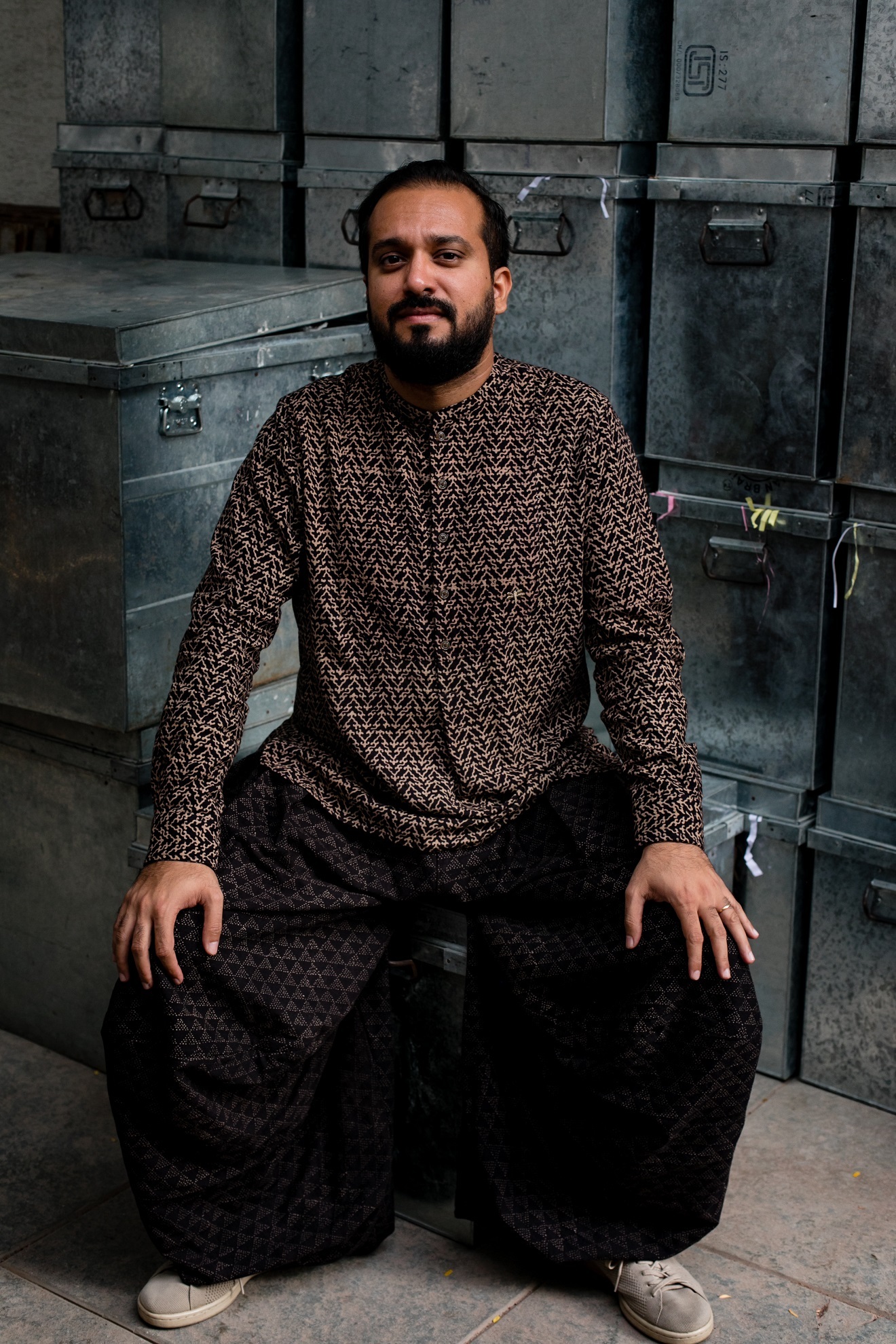
You have a prolific release output, how much time do you spend in the studio? And how much time do you tend to spend on composing a track?
"I feel anxious when I stop making music. I feel as though I become more stressed out and this affects me. I tend to close in as all the energy gets stuck inside of me so this is not healthy for me personally. I make it a point to hustle to get into the studio no matter what is going on around me. Obviously, there are times when I have to gig a lot and I don't have time, but whenever I do have time, I am always around the studio. Also, my family is super accommodating with me and they respect my studio time which is great and super lucky."
This sounds like a great system. Is there any advice you could give to upcoming producers in terms of finishing their work?
"No need to finish the tracks quickly. I always leave my tracks and revisit them after a couple of months. That’s when the magic happens. However, the revisiting process is very important. When you revisit, then you should just finish the track. That’s all! Never make music in a hurry. Always stay modest and leave room for improvement."
India has a rich and vibrant musical heritage, to what extent does its legacy inform or influence your music?
"India is one the most advanced countries in terms of music, both in terms of rhythm and melody. Our ancestors have really invented some amazing instruments and spent time developing some super complex rhythm structures and quarter notes within the Indian Classical framework. Our folk music is also very developed! It's impossible to live in India and not be influenced by the local music here. However, one has to be very mindful in using such sounds as it is very easy to misrepresent any culture or undermine a culture by using the sounds in a cheesy and lame way."
Absolutely, India has birthed some truly mind-blowing rhythmic structures! Finally, what's next for Hamza Rahimtula and Wind Horse?
"Our studio and school in Hyderabad (South India) is almost Done. We have a fully equipped analogue mixing and mastering facility along with a school to teach DJ & Production Courses. Me, Stalvart John, Unnayanaa, and Farhan Rehman have formed Ngoma Collectiv and are now focusing on events to promote and solidify the house music scene in India. We also have some friends outside of Ngoma that are all working with us collectively to push house and disco in India. There are also three more albums lined up for next year – two more in the Banjara series and a Rework album out through Selekta Recordings."
Thanks so much for speaking to us Hamza, it's been an absolute pleasure.
Hamza Rahimtula's 'Banjara Series - Spain and South America' is out now on Wind Horse. You can buy it here


